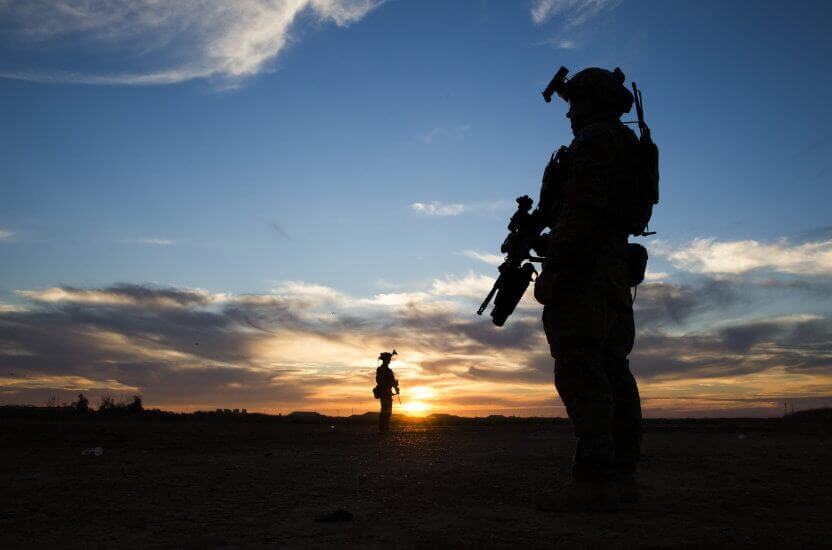The US defence R&D agency has launched a new program aimed at pre-emptively identifying veterans at risk of suicide.
The Defense Advanced Research Projects Agency (DARPA) has announced the launch of the Neural Evidence Aggregation Tool (NEAT) program, aimed at developing a new cognitive science tool designed to pre-emptively identify people at risk of suicide by analysing preconscious brain signals.
This is expected to reduce dependence on consciously filtered responses gathered from a questionnaire.
DARPA has compared the potential function served by NEAT to MRI scans, noting while MRs detect an early meniscal tear prior to a more serious injury, NEAT would identify psychological and behavioural changes.
“NEAT is a proof-of-concept effort attempting to develop a new tool for mental and behavioural health screening that moves us beyond historical and current methods of questions and consciously filtered responses,” Greg Witkop, a former Army surgeon and current program manager in DARPA’s Defense Sciences Office, said.
“Using the preconscious will hopefully enable us to detect signs of depression, anxiety, or suicidal ideation earlier and more reliably than ever before.”
According to Witkop, if the program is successful, NEAT could “significantly augment behavioural health screening” while also serving as a new way to assess ultimate treatment efficacy.
This, he added, would help address a tendency for patients to tell their clinicians what they think the clinician wants to hear rather than expressing their true feelings.
The screening process envisioned could involve presenting various statement stimuli of behavioural health relevance, including biographical information, actions, or intentions to measure preconscious responses.
NEAT would then triangulate responses to aggregate evidence and determine if the person reading the stimuli statements believes they are true, false, or indeterminate.
The program is expected to include two technical areas — a R&D phase involving several multidisciplinary teams spanning cognitive science, bioengineering, and machine learning to address key technical challenges to develop NEAT processes; and a second phase addressing independent validation and verification.
Participants selected for this second area are expected to work with DARPA and technical area one teams to provide expertise and independently validate NEAT methods.
DARP’s NEAT program is scheduled to run for approximately three and a half years, with a 24-month proof of concept phase, followed by an 18-month operational setting phase.
The agency has committed to leveraging an independent Ethical, Legal, and Societal Issues (ELSI) group to advise NEAT program leadership and performers on ELSI concerns.
“Ultimately, NEAT intends to augment current behavioural health screening programs by providing clinicians with previously unavailable information to enable earlier interventions and more reliable measures of successful treatment,” Witkop added.
“Just as the objective evidence of an X-ray or MRI is sometimes necessary to help a military member not feel like they are letting their unit down because of a visible injury, NEAT will attempt to provide objective evidence of invisible injuries for help to be provided in time.”
The launch of the NEAT program is part of a broader mental health and suicide prevention effort in the defence community.
According to research from Boston University, more than 30,000 active-duty members and veterans have taken their own lives since September 11, 2001 – four times as many as those killed in post-9/11 military operations.
Support is available to anyone who needs it, including:
- Defence All-hours Support Line 1800 628 036: a confidential telephone service for ADF members and their families.
- Defence Member and Family Helpline 1800 624 608: staffed by qualified human services professionals including social workers.
- Open Arms Veterans & Families Counselling 1800 011 046: provides free and confidential counselling and support for current and former serving ADF members and their families.
- The Defence Employee Assistance Program (EAP) 1300 687 327: a free, confidential and professional counselling service available to Defence Australian Public Service employees, Australian Signals Directorate employees, Australian Defence Force Reservists, ADF Cadets, Officers and Instructors of ADF Cadets and their immediate families, and their supervisors/managers.
- Safe Zone Support 1800 142 072 (available 24/7): a free and anonymous counselling line, for veterans and their families, providing access to specialised counsellors, with an understanding of military culture and experience.
- Lifeline Australia (available 24/7) 13 11 14: a national charity providing all Australians experiencing a personal crisis with access to 24-hour crisis support and suicide prevention services.








